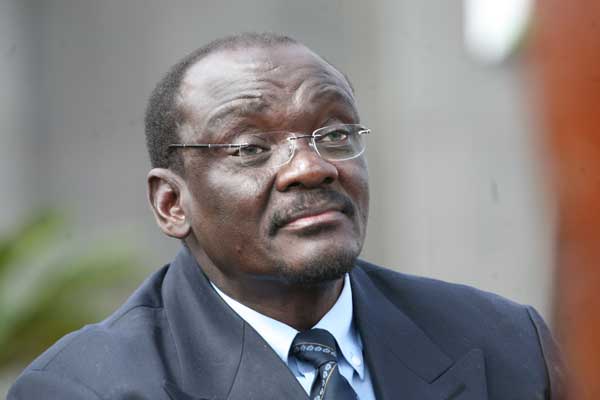
By Jonathan Maphenduka
AT least 1 300 Zimbabweans living in Botswana have been expelled from Botswana following the outbreak of the coronavirus pandemic.
Last week Vice-President Kembo Mohadi went on a tour of Plumtree border post to witness returning Zimbabweans after it was reported that at least 40 people were reporting to authorities daily without Botswana authorities informing their Zimbabwean counterparts.
Authorities in Plumtree said 1 291 returnees were now under quarantine in the border town with some of them being taken to facilities in Bulawayo.
This is extremely embarrassing when this treatment of Zimbabweans comes just before the ink on a recent co-operation agreements has hardly dried. It is common knowledge that relations between the two countries left a great deal to be desired under President Mokgwetsi Masisi’s predecessors. This new development comes just when the world thought relations of the two countries had thawed and improved sufficiently under President Emmanuel Mnangagwa and his new counterpart in Botswana.
Not so long ago Zimbabwe was well-represented to observe Botswana’s general elections, something that was unknown under Masisi’s and Mnangagwa’s predecessors.
This had been the case since 1980 when Zimbabwe gained independence under the late Robert Mugabe.
Mnangagwa was recently in Kasane to sign co-operation agreements with Botswana.
- Chamisa under fire over US$120K donation
- Mavhunga puts DeMbare into Chibuku quarterfinals
- Pension funds bet on Cabora Bassa oilfields
- Councils defy govt fire tender directive
Keep Reading
It, therefore, is in Botswana’s court, to explain just what caused this sudden rift when the two countries are in the grip of the novel coronavirus pandemic, which knows no borders. It is common knowledge that Botswana, whose population is only a fraction of that of Zimbabwe, does not export immigrant labour to Zimbabwe, while this country has millions of its citizens working in foreign countries, including Botswana.
The Batswana have a disparaging name for Zimbabweans, which means that Zimbabweans are not welcome in Botswana. This is the case in neighbouring South Africa where Zimbabweans have often been subjected to violence. This is a great challenge for Zimbabwe which should be tackled on many fronts, particularly the need for the country to create decent employment for its people.
This point can never be over-emphasised because our dignity as a nation hinges on our ability to create employment for our people. It is not enough to blame sanctions because if sanctions are the only problem, we must find means to eliminate the problem. Some think we have done just that by budgeting to compensate former white farmers. The government’s wisdom in this regard is highly debatable because neither the government nor the farmers themselves (in the face of historical evidence against it) can just why compensation is plausible.
Why are we still blaming sanctions if compensation is the answer and appropriate provision has been made to settle the issue? It appears that government has found a perfect scapegoat to blame.
Moreover, Zimbabwe’s relations with the international community are still a subject of tension and disagreement. What is it that the international community is demanding, which the government is unwilling to do? An honest answer to this question will probably tell Zimbabweans just what the problem is.
There is at this point in time nothing to show that government has met all the demands of the international community on the question of reforms, some of which are required by the country’s constitution. The year 2030 is by all accounts forecast to be the beginning of the new world order (NWO) when no country will be allowed to trade unless they are subscribers to the NWO. There will be no scapegoats to blame then and it is imperative that Zimbabwe must prepare for 2030 now.
The divide between the East and the West will not work then because those countries that are being blamed for sanctions now will be running the world unchallenged. We will have absolutely no choice, but to obey the new order.
So let’s not give the people a blank cheque for 2030.
l Jonathan Maphenduka contact 0772 332 404











